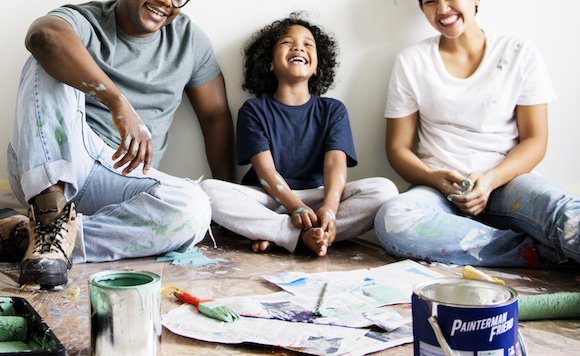Raising Emotionally Intelligent Children (Help Guide Org)
Parents who raise emotionally intelligent kids teach this important skill —here’s how (CNBC)
One of our children’s deepest needs is to feel heard, and by listening carefully and expressing empathy, parents can help fill this need. More importantly, research has found that if someone feels empathy, even if it’s just from watching a touching video, it can make them feel more connected to — and generous toward — others. In other words, practicing empathy with your kids can help them grow up to be emotionally intelligent adults.
Raise Your Child to Be an Optimist (Aha!Parenting)
It's easy to feel frightened and overwhelmed in today's world. But it IS possible, even in scary times, to be guided by the values that matter most to us, including the commitment to provide a calm, loving home for our children. To do that, we need a sense of optimism -- the conviction that things will work out, and that what we do can have a positive impact.
Yes, you should talk to your kids about Ukraine. Psychologists explain how (CNN & verywellmind)
With the many weeks of war in Ukraine following Russia's invasion, kids may see disturbing images and videos on TV and social media or hear about the possibility of World War III. “It’s a brand-new thing that today’s parents have never had to really explain to their kids in terms of a war that is so in their face”. With so many images of violence and so few answers, your kids likely are aware of the fighting even if it's far away - and they can be terrified or at the very least, extremely worried or troubled. As you engage in conversation about Ukraine, consider the following.
8 Vital Reasons to Teach Your Child About Feelings (Nature & Thrive)
How to raise emotionally intelligent kids (TED)
5 Tips for Cultivating Empathy (Harvard)
Empathy is at the heart of what it means to be human. It’s a foundation for acting ethically, for good relationships of many kinds, for loving well, and for professional success. And it’s key to preventing bullying and many other forms of cruelty. How can parents cultivate empathy? The following are five guideposts based on research and the wisdom of practitioners.
PARENTING - Learn how to Do It Better With Science, Data and Mr. Rogers (The Next Big Idea)
At Kidevolve, we’re all about family training tools to foster healthier relationships and more empowered, self-reliant kids! Kids don’t come with a training manual, but this is the closest thing to it. In this special episode of The Next Big Idea podcast, they share three book bites that demystify the art and science of parenting.
Back-to-School Anxiety During COVID (Child Mind Institute)
Getting back to the Fall school routine is exhilarating, yet can also be anxiety-producing for kids and families alike - especially given our last few years dealing with the many pandemic changes. Check out these tips from the Child Mind Institute to reduce stress at home, and gear up for success. Adding a sprinkle of mindfulness to your daily routine can also be a powerful antidote to stress. Check out Kidevolve’s Can of Delight or Worry Box (by Jeff Warren) to boost confidence and cope with worries, or Heart Medicine (by Christine Alevizakis) to get a head start on self-care! And you can listen to audio-only versions of these cool Creative Mind Journeys here.










